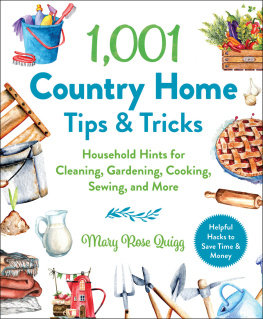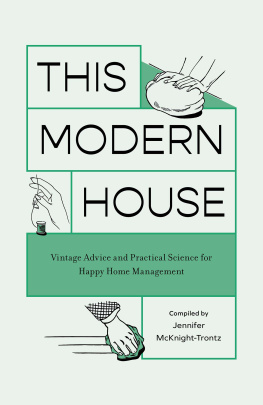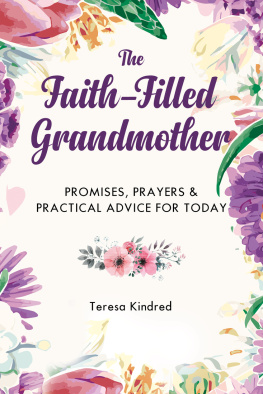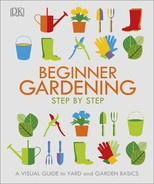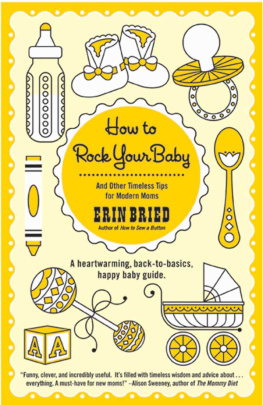Bried - How to Sew a Button: And Other Nifty Things Your Grandmother Knew
Here you can read online Bried - How to Sew a Button: And Other Nifty Things Your Grandmother Knew full text of the book (entire story) in english for free. Download pdf and epub, get meaning, cover and reviews about this ebook. City: New York, year: 2009, publisher: Ballantine Books, genre: Romance novel. Description of the work, (preface) as well as reviews are available. Best literature library LitArk.com created for fans of good reading and offers a wide selection of genres:
Romance novel
Science fiction
Adventure
Detective
Science
History
Home and family
Prose
Art
Politics
Computer
Non-fiction
Religion
Business
Children
Humor
Choose a favorite category and find really read worthwhile books. Enjoy immersion in the world of imagination, feel the emotions of the characters or learn something new for yourself, make an fascinating discovery.

- Book:How to Sew a Button: And Other Nifty Things Your Grandmother Knew
- Author:
- Publisher:Ballantine Books
- Genre:
- Year:2009
- City:New York
- Rating:5 / 5
- Favourites:Add to favourites
- Your mark:
- 100
- 1
- 2
- 3
- 4
- 5
How to Sew a Button: And Other Nifty Things Your Grandmother Knew: summary, description and annotation
We offer to read an annotation, description, summary or preface (depends on what the author of the book "How to Sew a Button: And Other Nifty Things Your Grandmother Knew" wrote himself). If you haven't found the necessary information about the book — write in the comments, we will try to find it.
Bried: author's other books
Who wrote How to Sew a Button: And Other Nifty Things Your Grandmother Knew? Find out the surname, the name of the author of the book and a list of all author's works by series.
How to Sew a Button: And Other Nifty Things Your Grandmother Knew — read online for free the complete book (whole text) full work
Below is the text of the book, divided by pages. System saving the place of the last page read, allows you to conveniently read the book "How to Sew a Button: And Other Nifty Things Your Grandmother Knew" online for free, without having to search again every time where you left off. Put a bookmark, and you can go to the page where you finished reading at any time.
Font size:
Interval:
Bookmark:
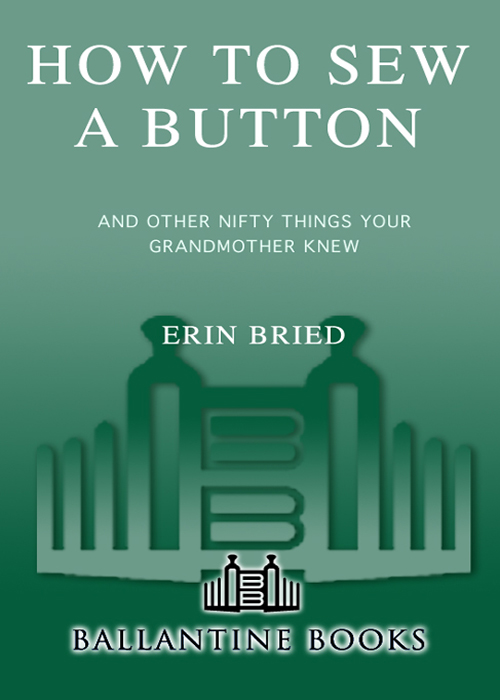
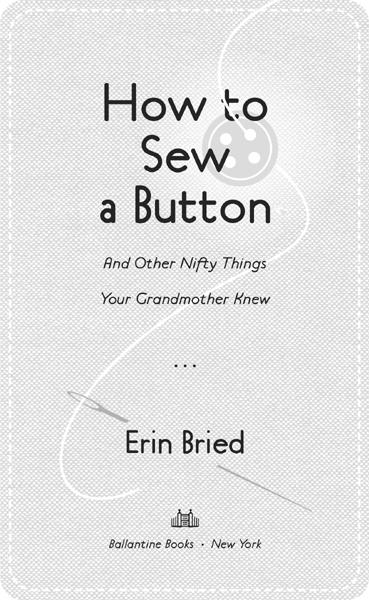
T O N ONI , G RANDMA S HIRLEY ,
M OMMOM , G RANDMA R O ,
G RAMMY L OU , G RANDMA S ARA ,
AND ALL GRANDMOTHERS EVERYWHERE


More than a decade ago, I landed my dream job at Cond Nast, a world-renowned magazine publisher. On my first day of work, I arrived at the glamorous headquarters, then located on Madison Avenue, in my navy Payless pumps and my matching navy Casual Corner suit, which, for me, a twenty-two-year-old from semirural Pennsylvania, was high fashion. As a rover, or in-house temp, I filled in for the absent assistants of executives and senior editors of magazines, including Vogue, GQ, and Glamour. My first stop: the office of a certain big shot. When, with a trembling hand, I answered his phone for the first time, there was a woman with a thick Somalian accent on the other end. This is Iman, she said. Throughout that day, I heard myself saying things like, Princess Marie Chantal of Greece is on the line and A woman named Liz Smith asked that you call her. She didnt say where she was from. After lunch, my boss got a haircut by a stylist so famous he has his own line of shampoo. After work, he went to work out. I know this because I called my first-ever black car to take him to the gym. And so began my life in New York City.
Now, Im the senior staff writer at SELF magazine, and my stories are read by more than six million women every month. I travel all over the country, sometimes even farther, to interview the celebrities who appear on our cover, and as a result, Ive honed a very specific set of skills: namely, hailing cabs and ordering room service. At the photo shoots, where I spend many of my days watching the stars be photographed, there are always caterers, stylists, manicurists, even tailors, who are always happy to make a quick hem or repair any loose buttons. On the road, everything in life seems to be taken care of by other people.
And then I come home.
I recently invited some friends over for a dinner party, and for dessert I decided to do something extra specialmake a strawberry-rhubarb pie. After searching for rhubarb high and low in just about every grocery store in Brooklyn, I was so happy and relieved when I finally found a bunch. It wasnt great-looking stuffit was much thinner, redder, and leafier than Id remembered it beingbut it would do, I thought. You cant go wrong with pie. When I got it home, I followed the recipe carefully. I snipped off the leaves, chopped up the pencil-thin red stems, and tossed them into the pie with sugar, flour, and sliced berries. After I baked it to a perfect golden brown, I carried it to the table. My friends were so impressed. Who makes pie these days? they marveled. I dont even know how to make a pie! one confessed. I was so proud. Beaming, really. And then they each took a bite. Thats when the compliments stopped. Silence. Crickets. A few sideways glances and lots of polite chewing-in-slow-motion. What a strange reaction to my delicious dessert, I thought. Then I tasted it, expecting a pink, sweet-tart sensation. Instead, I got a mouthful of green bitterness. It tasted like the smell of freshly cut grass. Mortified, I told my friends to stop eating. Clearly, Id made a huge mistake. My enduring guests launched into a kindhearted interrogation, and together we discovered my error. It turns out that Id accidentally bought Swiss chard instead of rhubarb, and Id made the pie using the vegetables stems, the part you normally throw away.
Thats when it hit me: When I was a child, I used to help my grandmother clip rhubarb out of the garden; now, as an adult, I cant even identify the vegetable in the grocery store. Funny, yes, but also completely humiliating. When did I lose my ability to take care of myself?
The more I think about it, the less self-sufficient I realize Ive become: Its been so long since Ive done my own laundry that I can no longer remember if you wash colors in hot or cold. If I get pills on a sweater, I give it away. My breakfasts often come in bar form. My dinners usually come inside one of two things: a pizza box or a flour tortilla. Ive killed more plants than I care to admit. And Ive never once balanced my checkbook, much less devised a household budget.
What is simultaneously comforting and alarming about my domestic incompetence is that I am hardly alone. Im joined by millions of women, Gen Xers and Gen Yers, who either have consciously rejected household endeavors in favor of career or, even more likely, were simply raised in the ultimate age of convenience and consumerism. Why do for ourselves, we shrug, when we can pay someone else to do it for us?
Thats all begun to change.
We have now entered what experts are calling the worst economic crisis since the Great Depression. Suddenly, not knowing how to cook my own meals, care for my own house, iron my own shirts, even make my own entertainment (hello, cable!) seems not only disempowering, but also downright irresponsible. Thats why I decided to do something about it. First step in moving forward: looking back.
My maternal grandfather died in 1956, leaving my late grandmother Hilda McFall to raise her two children alone. A feminist and activist, she soon became one of the first women elected to county office. As a Juilliard-educated pianist, she also supplemented her income by teaching lessons and playing in the theater. She kept her house immaculate, her beds made, her bathroom neat, and her lawn manicured. She always had a fresh pitcher of iced tea in the fridge and something delicious, like pasties or saffron buns, in the oven. She had close friends with whom she played cards into the night. Even though money was tight, she always managed to give each of her five grandchildren a crisp dollar at every visit and $50 every Christmas. She shopped locally and walked wherever she could, long before being green was a marketing concept. She was strong. She was prudent. And, above all, she was happy.
When I think about her life now, Im truly awestruck, and I can think of no better role model for these tough times than our grandmothers, particularly those who survived the Great Depression. All grandmothers have stories about the clever, sometimes surprising, things they did to get by. They baked their own bread to save dough. They grew their own vegetables to feed their families. They wore their clothes well, until they wore them out. They took care of their neighbors and knew when to ask for help. They managed to keep romance alive without going out to fancy restaurants.
Since my own grandmothers are no longer alive, I reached out to others from all around the country to see what I could learn. (You can read more about them in the next section.) They told me stories about making do, helping others, finding fun, and even falling in love. As I was listening to each of them, I knew I was not only learning practical wisdom, like how to save money, live green, and take better care of myself and my family, but I was also collecting important stories, some of which have never been told before and all of which will soon disappear. Their stories are ones we need to remember.
If you are lucky enough to have your grandmother with you, sit and talk with her sometime. Ask her big questions, like whats the secret to a happy marriage, and little ones, like when was the first time she put on lipstick. Ask her nice questions, like what she did for fun, and cheeky questions, like if her father ever made whiskey in the basement (and if she ever snuck a taste). Ask her how she managed. Or just ask her to tell you a story, any story. I guarantee youll be surprised by what youll find out. If you no longer have your grandmother by your side, its my hope that through this book, youll now have the spirit of her next to you, offering you warm encouragement and gently guiding you through essential life tasks that you may have forgotten (or never even learned in the first place). I hope it will offer you calm, comfort, and, above all, confidence.
Font size:
Interval:
Bookmark:
Similar books «How to Sew a Button: And Other Nifty Things Your Grandmother Knew»
Look at similar books to How to Sew a Button: And Other Nifty Things Your Grandmother Knew. We have selected literature similar in name and meaning in the hope of providing readers with more options to find new, interesting, not yet read works.
Discussion, reviews of the book How to Sew a Button: And Other Nifty Things Your Grandmother Knew and just readers' own opinions. Leave your comments, write what you think about the work, its meaning or the main characters. Specify what exactly you liked and what you didn't like, and why you think so.

